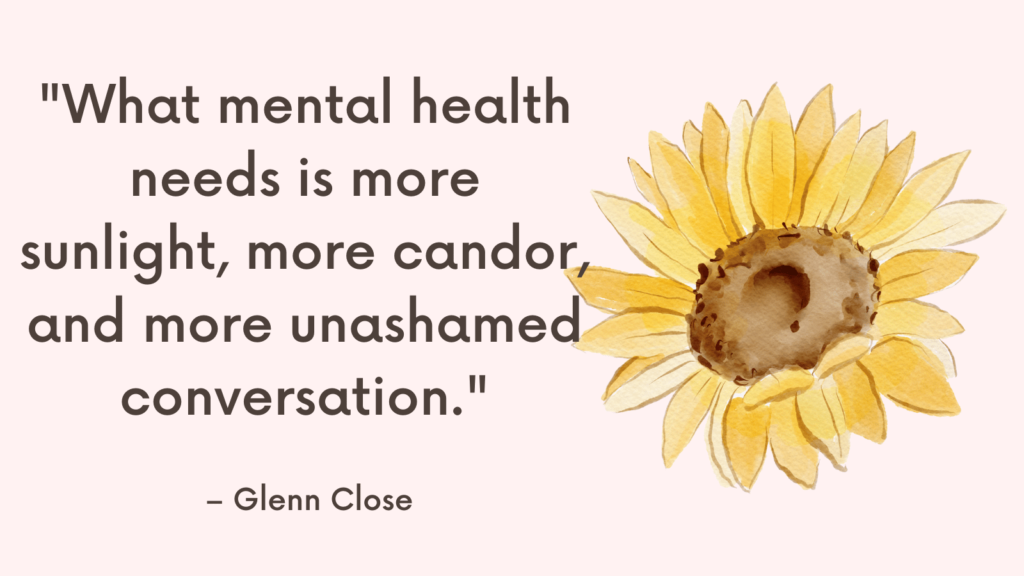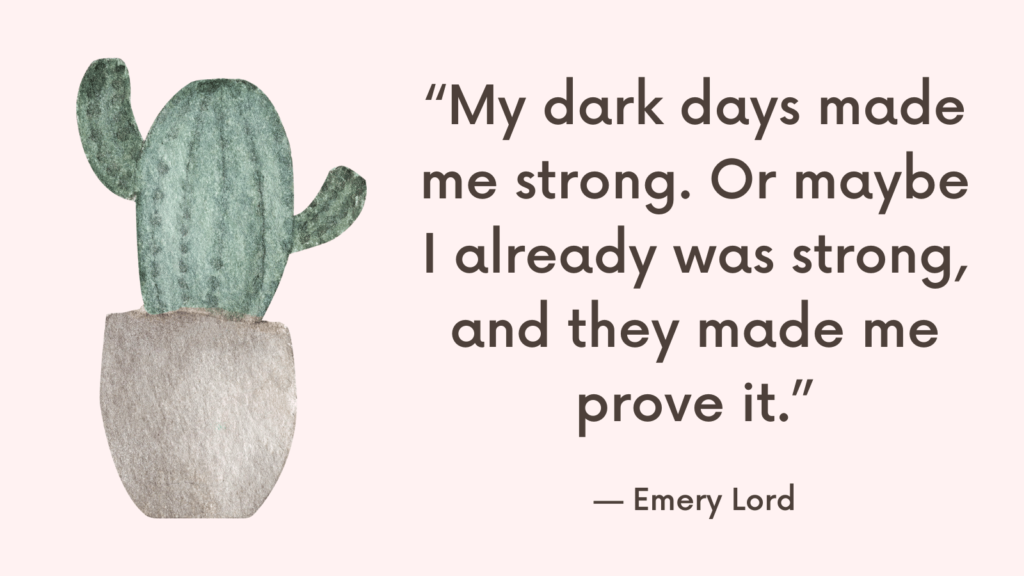This post contains “fear of vulnerability test” along with helpful tips to overcome fear of vulnerability.
Fear of Vulnerability Test
Results
#1. Do you find it challenging to express your emotions openly and honestly?
#2. Do you often avoid sharing personal experiences or thoughts with others?
#3. Are you hesitant to ask for help or support from others?
#4. Do you feel uncomfortable being seen or heard by others?
#5. Are you afraid of being judged or rejected if you show your true self?
#6. Do you frequently put up emotional walls to protect yourself from getting hurt?
#7. Are you hesitant to trust others fully, fearing they may take advantage of your vulnerability?
#8. Do you find it difficult to establish and maintain intimate relationships?
#9. Are you averse to taking risks that involve emotional exposure?
#10. Do you struggle with setting boundaries in relationships, leading to feelings of being taken advantage of?
We will not sell your information. All results are kept confidential.
This quiz is for informational purposes only. It is not meant as a diagnostic or assessment tool.
Results
The questions above represent common signs of fear of vulnerability. If you answered yes to most of these questions, then fear of vulnerability may be a problem for you.
Related: Emotional Intimacy Test (+13 Tips On How To Increase Emotional Intimacy In A Relationship?)
Causes of Fear of Vulnerability
The fear of vulnerability can arise from various factors and experiences. Here are some common causes that can contribute to the development of this fear:
1. Past traumas
Experiencing past traumas, such as betrayal, rejection, or emotional/physical abuse, can create a fear of vulnerability.
These negative experiences can make individuals hesitant to expose their true selves for fear of similar negative outcomes.
2. Fear of judgment or rejection
The fear of being judged, criticized, or rejected by others is a significant factor in the fear of vulnerability.
This fear often stems from a desire to protect oneself from potential emotional pain or feelings of inadequacy.
3. Cultural or societal influences
Societal or cultural norms that discourage vulnerability can also contribute to this fear.
In some cultures, showing vulnerability may be seen as a sign of weakness or may contradict traditional gender roles, leading individuals to suppress their emotions and avoid being vulnerable.
4. Childhood experiences
Early experiences, particularly in childhood, can shape one’s beliefs and attitudes towards vulnerability.
If a person grew up in an environment where vulnerability was discouraged or punished, they may develop a fear of being open or expressing their emotions.
5. Low self-esteem and self-worth
Individuals with low self-esteem or a lack of self-worth often struggle with vulnerability.
They may believe that revealing their true selves will lead to rejection or confirm their negative self-perceptions.
6. Control and fear of loss
Some individuals fear vulnerability because it involves relinquishing control and opening themselves up to the possibility of loss, whether it’s loss of autonomy, emotional security, or the loss of a relationship or connection.
Related: Best 6 Ways to Let Go of Wanting to Control Everything
7. Perfectionism
Perfectionistic tendencies can contribute to the fear of vulnerability.
Striving for perfection and presenting an image of flawlessness allows individuals to avoid exposing their vulnerabilities, as they fear that imperfections will be judged or rejected.
8. Lack of trust
Trust issues resulting from past betrayals or breaches can make it difficult for individuals to be vulnerable.
The fear of being hurt again can hinder their ability to open up emotionally to others.
It’s important to note that these causes are not exhaustive, and each individual’s experience with fear of vulnerability may differ.
By understanding the underlying causes, one can begin to address and overcome this fear, leading to a more authentic and fulfilling life.
Related: Fear of Engulfment: What It Is & How to Overcome It
How to Overcome Fear of Vulnerability?
Overcoming the fear of vulnerability can be a transformative journey that allows you to experience deeper connections with others, personal growth, and increased self-acceptance.
Here are some strategies and techniques to help you overcome your fear of vulnerability:
1. Recognize and understand your fear
Start by acknowledging and accepting that you have a fear of vulnerability.
Reflect on how this fear has affected your relationships and personal growth.
Understanding the roots of your fear can provide insight into why it developed and help you address it effectively.
2. Challenge negative beliefs and thoughts
Fear of vulnerability often stems from negative beliefs about oneself or the fear of judgment and rejection.
Identify any negative beliefs or thoughts you may have, such as “Being vulnerable is weak” or “If I show my true self, I’ll be rejected.”
Challenge these beliefs by questioning their validity and replacing them with more empowering and realistic beliefs.
Following are some questions to help you with that:
- Have there been times in the past where you allowed yourself to be vulnerable and had positive outcomes?
- What are the potential benefits of embracing vulnerability in your life?
- What is the worst-case scenario if you were to be more open and vulnerable with others?
- Are there any patterns or beliefs from your past that may be perpetuating this fear? How accurate are they in the present?
- What is holding you back from taking small steps towards vulnerability and testing the waters?
- How might your relationships improve if you were able to share your true thoughts, feelings, and needs more openly?
- Can you identify any role models or examples of individuals who have embraced vulnerability and experienced positive outcomes?
Related: What Causes Cognitive Distortions? (+Top 10 Common Cognitive Distortions & How To Challenge Them)
3. Practice self-compassion
Being vulnerable requires being gentle and kind to yourself.
Practice self-compassion by treating yourself with understanding, patience, and acceptance.
Remind yourself that vulnerability is a natural part of being human and that everyone experiences it in different ways.
Here are some self-compassionate statements to repeat:
- “It’s understandable that I have a fear of vulnerability, as it is a common and natural feeling.”
- “I acknowledge that vulnerability takes courage, and I am willing to extend compassion to myself as I work through this fear.”
- “I am allowed to take small steps towards vulnerability at my own pace, honoring my feelings and boundaries along the way.”
- “Mistakes and setbacks are a normal part of the learning process, and I will be gentle with myself as I navigate this journey.”
4. Start small
Overcoming the fear of vulnerability is a gradual process.
Begin by taking small steps towards vulnerability in low-risk situations.
This could involve sharing your thoughts or feelings with a trusted friend or family member.
Gradually increase the level of vulnerability as you become more comfortable.
Related: Best 9 Tips On How To Stop Avoidance Cycle (+FREE Worksheets PDF)
5. Build a support system
Surround yourself with supportive and trustworthy individuals who encourage and validate vulnerability.
Having a reliable support system can provide you with a safe space to share your experiences and emotions without fear of judgment or rejection.
6. Practice emotional regulation skills
Developing emotional regulation skills can help you manage the discomfort that comes with vulnerability.
Learn techniques such as deep breathing, mindfulness, or journaling to help you navigate and express your emotions effectively.
7. Explore past experiences
Reflect on past experiences where vulnerability led to positive outcomes or personal growth.
These experiences can serve as evidence that vulnerability can be rewarding and help counteract the fear.
8. Set boundaries
Setting healthy boundaries is crucial in overcoming the fear of vulnerability.
Clearly define what you are comfortable sharing and with whom.
Communicate your boundaries to others and assertively express your needs when necessary.
Related: Top 25 Tips On How To Set Boundaries Without Being Controlling? (+FREE Worksheets PDF)
9. Practice self-acceptance
Embrace your authentic self and accept that vulnerability is an essential aspect of being human.
Recognize that being vulnerable does not equate to weakness but rather demonstrates courage and strength.

Conclusion
Overcoming the fear of vulnerability is a personal journey, and it takes time and practice.
Approach the process with patience and self-compassion, and don’t hesitate to seek support when needed.
As you gradually embrace vulnerability, you may find that it enriches your life, relationships, and personal growth in ways you never imagined.







